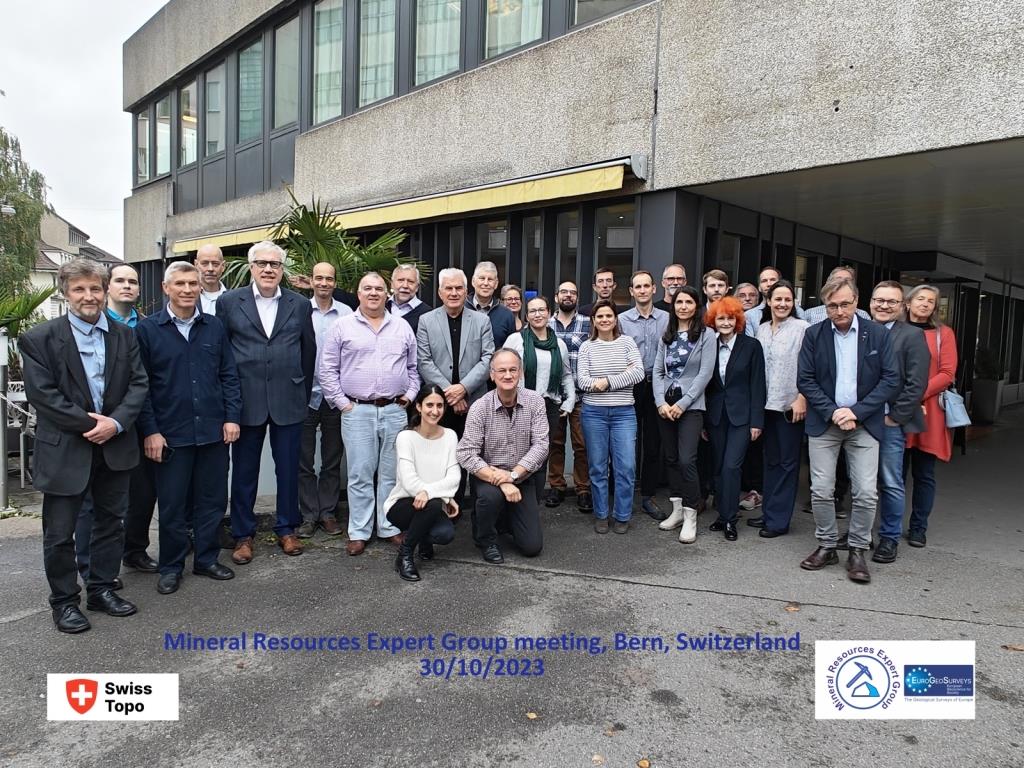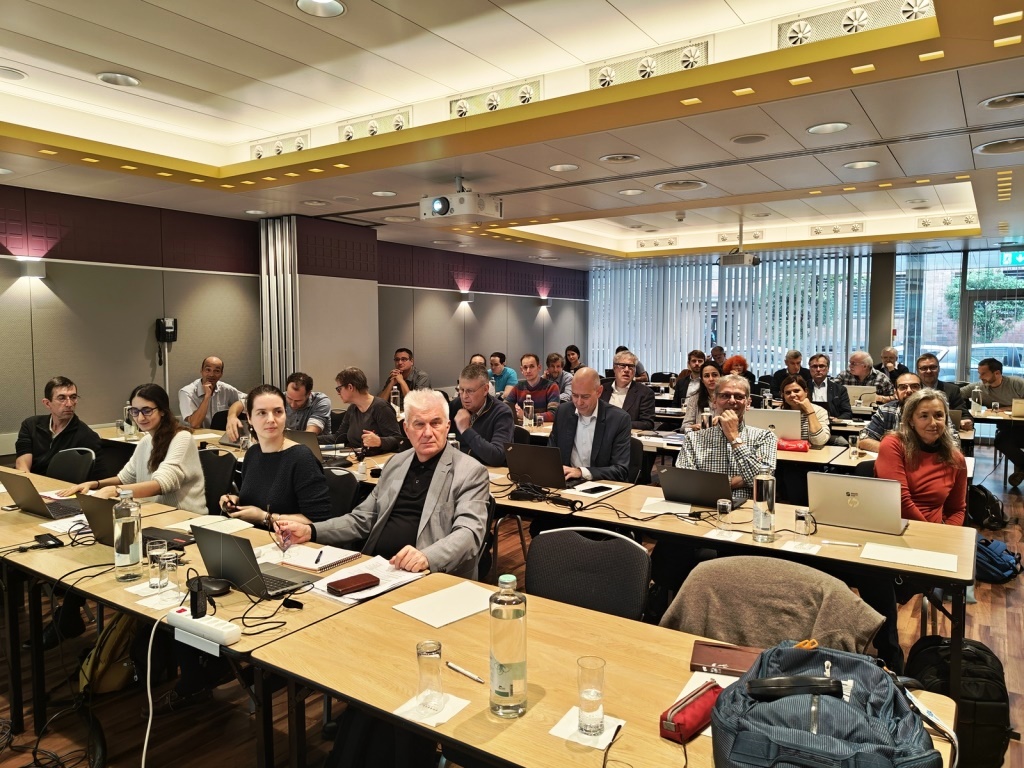The MREG (Mineral Resources Expert Group) meetings of the EGS (EuroGeoSurveys) and the GSEU (Geological Service for Europe) project took place from 29-31 October 2023 in Bern, Switzerland, in a hybrid format.
The Polish Geological Institute - PIB was also represented at the event.
On the first day, mineral experts met. The opinions and reactions of administrative bodies in European Union countries to the European Critical Raw Materials Act (CRMA) announced on March 16, 2023 by the European Commission were discussed. The regulation includes a 34-item list of critical as well as strategic raw materials (17 items) for the EU. Benchmarks have also been set for domestic capacity within the strategic raw material supply chain and its diversification to 2030.
The most important mineral arrangements in the EU include the following requirement: “extraction (of raw materials - ed.) is to correspond to at least 10% of annual consumption (in the EU - ed.), processing is to correspond to at least 40% of annual consumption, recycling is to correspond to at least 15% of annual consumption”.
In addition, a provision has been introduced for: "no more than 65% of the annual consumption of any strategic raw material in the European Union at any stage of processing to be sourced from a single country".
In addition, several articles of the CRMA were discussed (including Articles 18 and 35), which address the need for national geological surveys to develop CRM exploration and research strategies in member countries, as well as to establish cooperation in the supply chain of raw materials, the flow of information and the possibilities and means of exploration and extraction in EU countries.
Representatives from the geological surveys of Spain, Portugal, Sweden, Slovenia, Norway and Poland gave presentations on these issues in the form of short papers. Activities in the European Union member states were found to vary. In Spain, Sweden or Denmark, for example, the RMA has or will result in new regulations as well as updates to national raw material policies.
Prof. Stanisław Mikulski of PIG-PIB presented a paper entitled "The Raw Materials Act” from the Polish perspective", in which he presented the main assumptions of the State Raw Materials Policy 2050, adopted by a resolution of March 1, 2022 by the Council of Ministers, as well as the Report on the realisation and implementation of the State Raw Materials Policy 2050 as of March 2023 (prepared by the Ministry of Climate and Environment), and the amendment of the Geological and Mining Law (Act of June 16, 2023 amending the Act - Geological and Mining Law and some other acts - Journal of Laws of 2023 item 2029) with regard to the possibility of introducing a strategic deposit for the national economy.
In the afternoon, discussions also took place on the obligation to introduce the UNFC (United Nations Framework Classification of fossil energy and mineral resources) classification of raw materials by the member states of the European Union, developed under the activities of the United Nations Economic Commission for Europe - UNECE).
The meetings held on the second day were devoted entirely to issues related to the implementation of the GSEU project, and in particular its WP2 (Critical Raw Materials, the International Centre of Excellence and United Nations Framework Classification) part of the main tasks: T2.1. Critical Raw Materials onshore; T2.2. Critical Raw Materials offshore, T2.3. The International Centre of Excellence and T.2.4. United Nations Framework Classification (CRM-ICE-UNFC). The Polish Geological Institute - PIB is participating in Task T2.1-2 (funding) and Task T2.4 (no funding).
Meetings in the various task forces were held in parallel in a hybrid format. PIG-PIB participated in the T2.1 meeting, led by dr C. Albert. The substantive scope of the planned work, the need to revise the databases for CRM and the introduction of new information into the databases in terms of deposits and occurrences were discussed in detail. The possibility of developing maps for the following CRMs has been accepted: Bi, B, Co, Ga, Ge, REE, Li, Mg metal, Mn, graphite, PGE, Si metal, Ti, W, Cu, Ni, Nb, Ta, phosphates and V. The appropriateness of developing thematic CRM metallogenic maps for the whole EU area was preliminarily identified.
The final result of the work will be produced in EGDI format. Attendance at the meeting provided an opportunity to discuss current MREG and Raw Materials Act issues and the scope of work for the WP2 element of the GSEU project.

Members of the MREG group in front of the Swiss Topo headquarters in Bern, Switzerland

Working meeting of the implementers of the WP2 task as part of the GSEU project in Bern, Switzerland
Text: Stanisław Mikulski














 PGI-NRI offer
PGI-NRI offer Mineral resources of Poland
Mineral resources of Poland  Oil and Gas in Poland
Oil and Gas in Poland 



 Subscribe to RSS Feed
Subscribe to RSS Feed